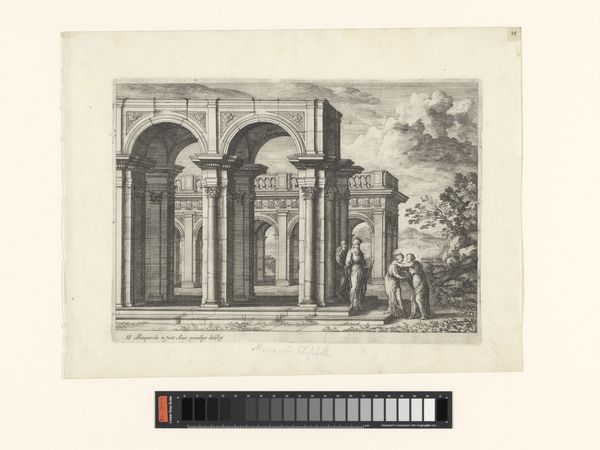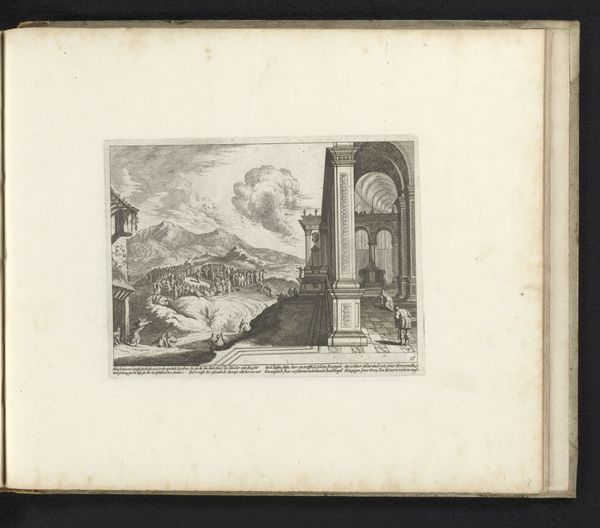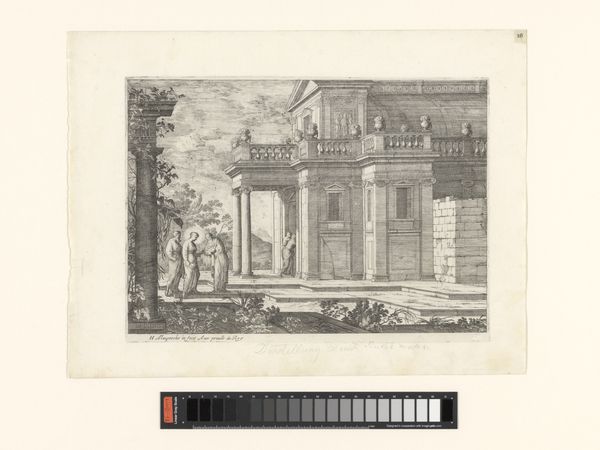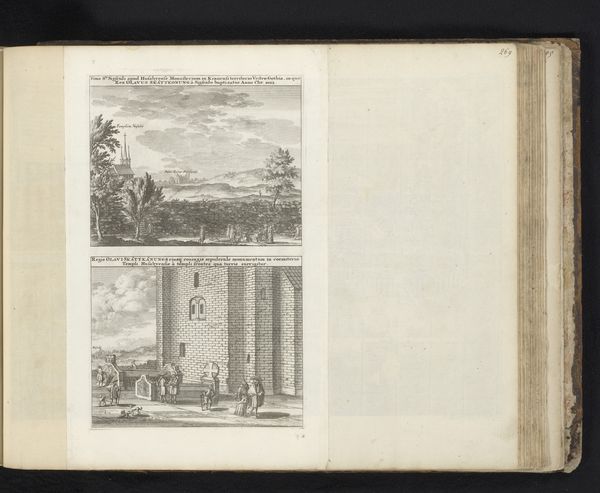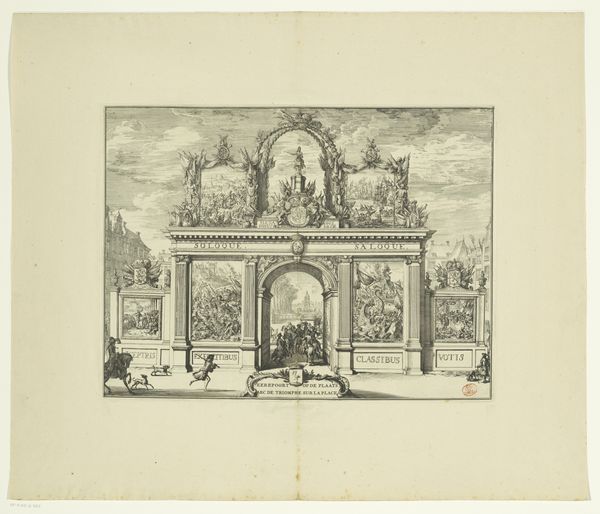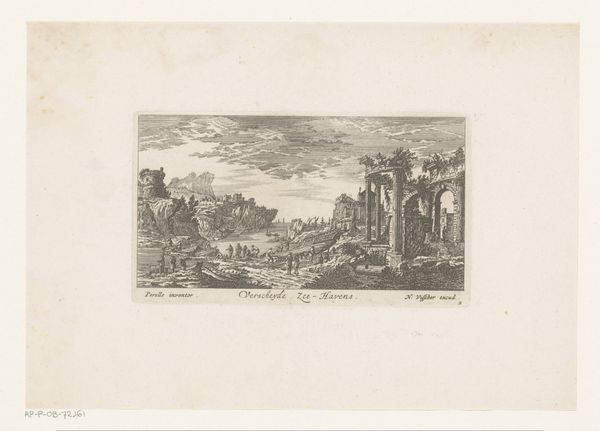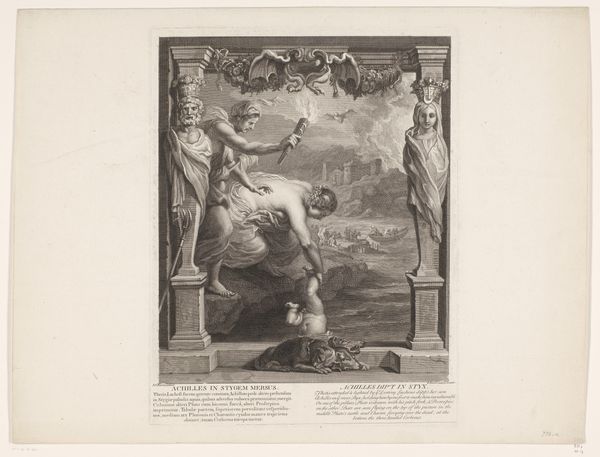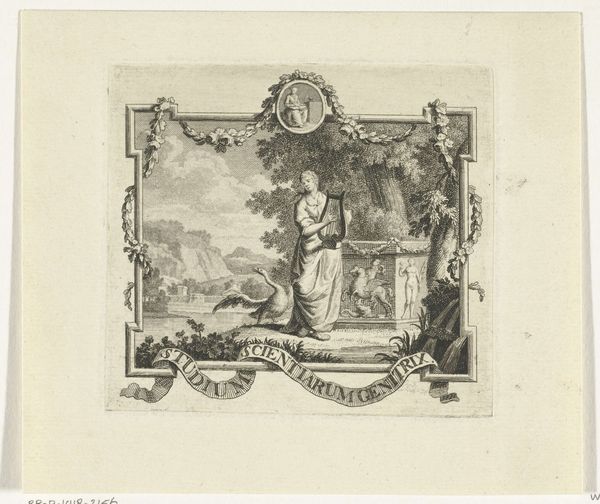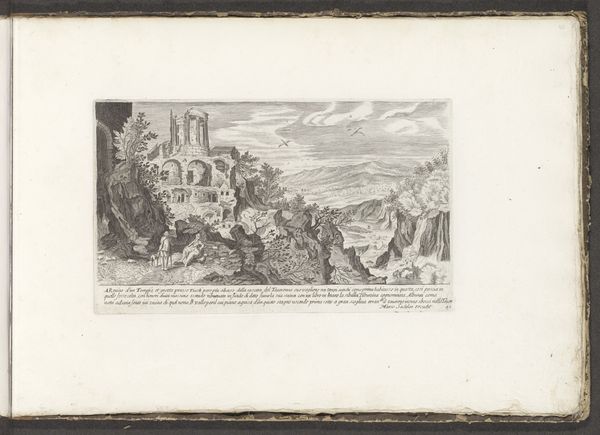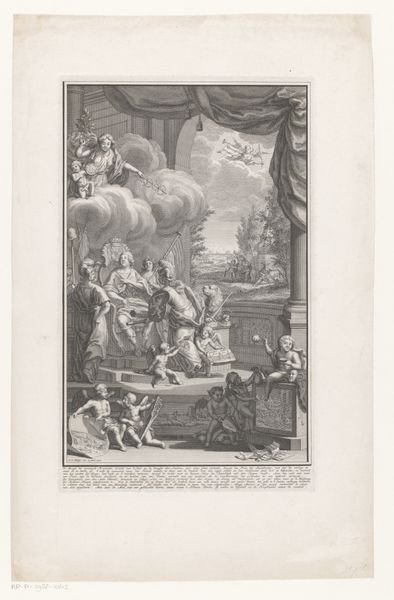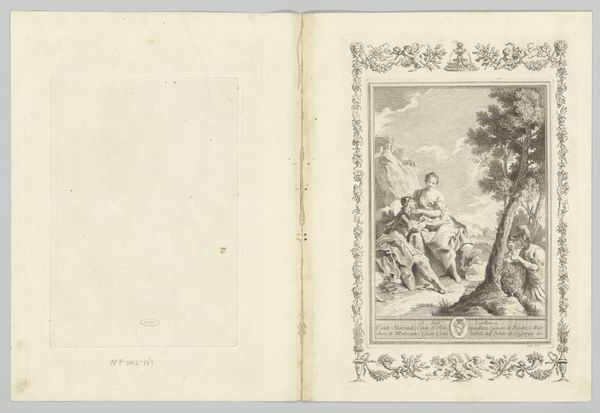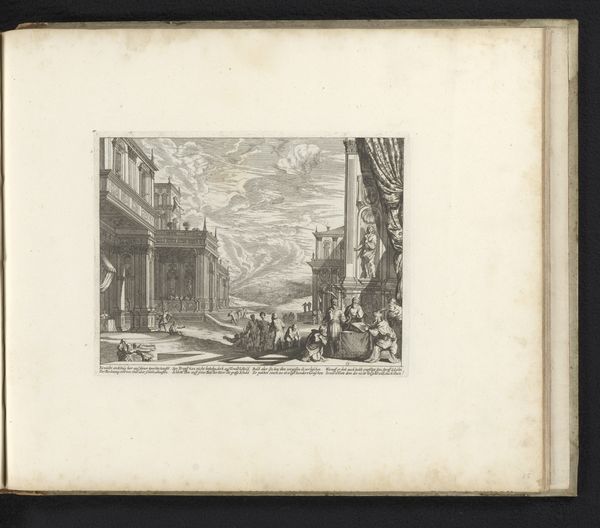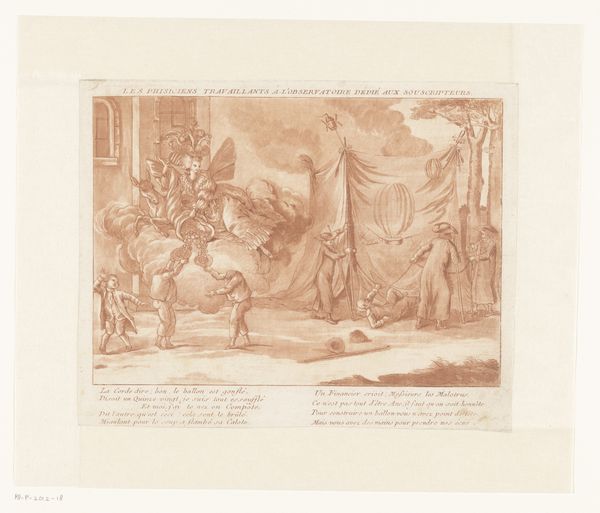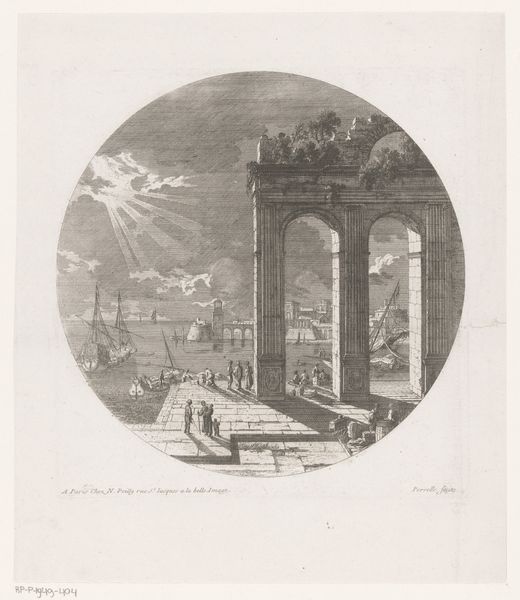
print, engraving
#
allegory
#
baroque
# print
#
figuration
#
line
#
history-painting
#
engraving
Dimensions: height 295 mm, width 391 mm
Copyright: Rijks Museum: Open Domain
Editor: This is a print called "Annunciation," created between 1639 and 1656. It's by Henri Mauperché and resides in the Rijksmuseum collection. The figures almost seem caught within the architectural structure; a divine message brought to the human world, but still bound to earth, if that makes sense? What do you make of this engraving? Curator: An engraving such as this one presents a fascinating encapsulation of cultural memory surrounding the Annunciation. Notice how the angel descends on a cloud, almost dramatically bursting onto the scene within billowing, fiery clouds. Do you sense any emotional tension in this juxtaposition? Editor: Yes, I see what you mean; it’s like two worlds colliding, maybe. The calm stillness of the seated figure inside versus the kinetic energy of the angel and clouds… Curator: Precisely! The architectural setting becomes a symbolic container – representing societal order and established belief – literally housing the very irruption of the divine. And the act of *writing*, taking place in this constructed and man-made space. What is the effect of such opposition? Editor: Maybe that faith must constantly make itself known to exist, needing to disrupt the everyday to reinforce its meaning? Curator: Yes, the image implies an ongoing negotiation between the earthly and the divine, one that plays out within the framework of human creation and within societal perception and reception of images. I appreciate your thoughts. Editor: Thanks, I learned a lot by simply considering that opposition between inside/outside and divine/human. I will definitely approach engravings with new eyes now.
Comments
No comments
Be the first to comment and join the conversation on the ultimate creative platform.
